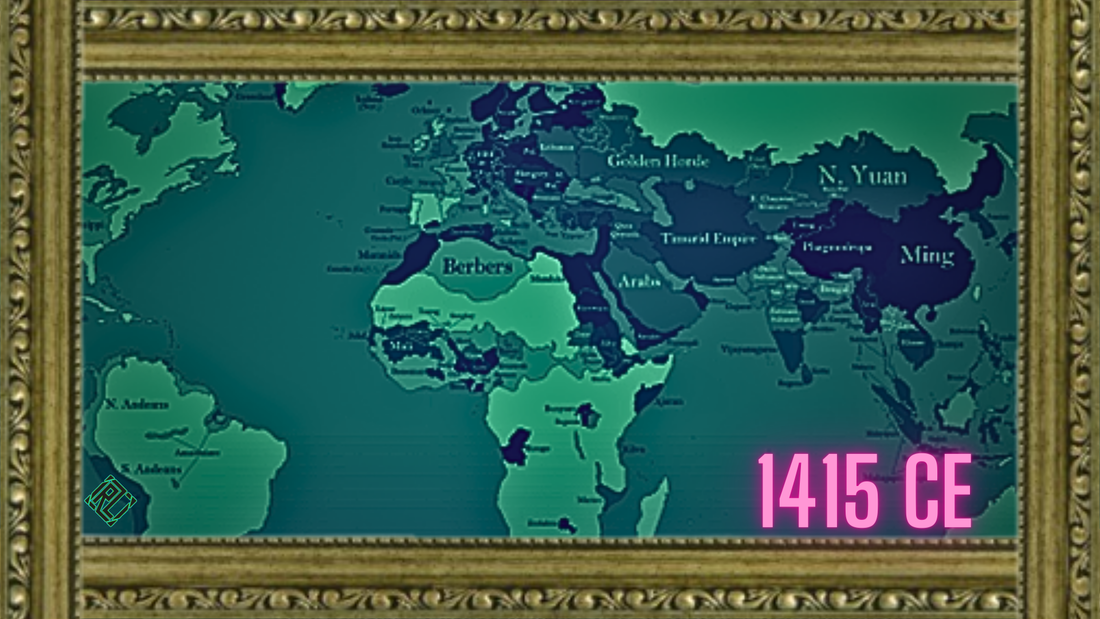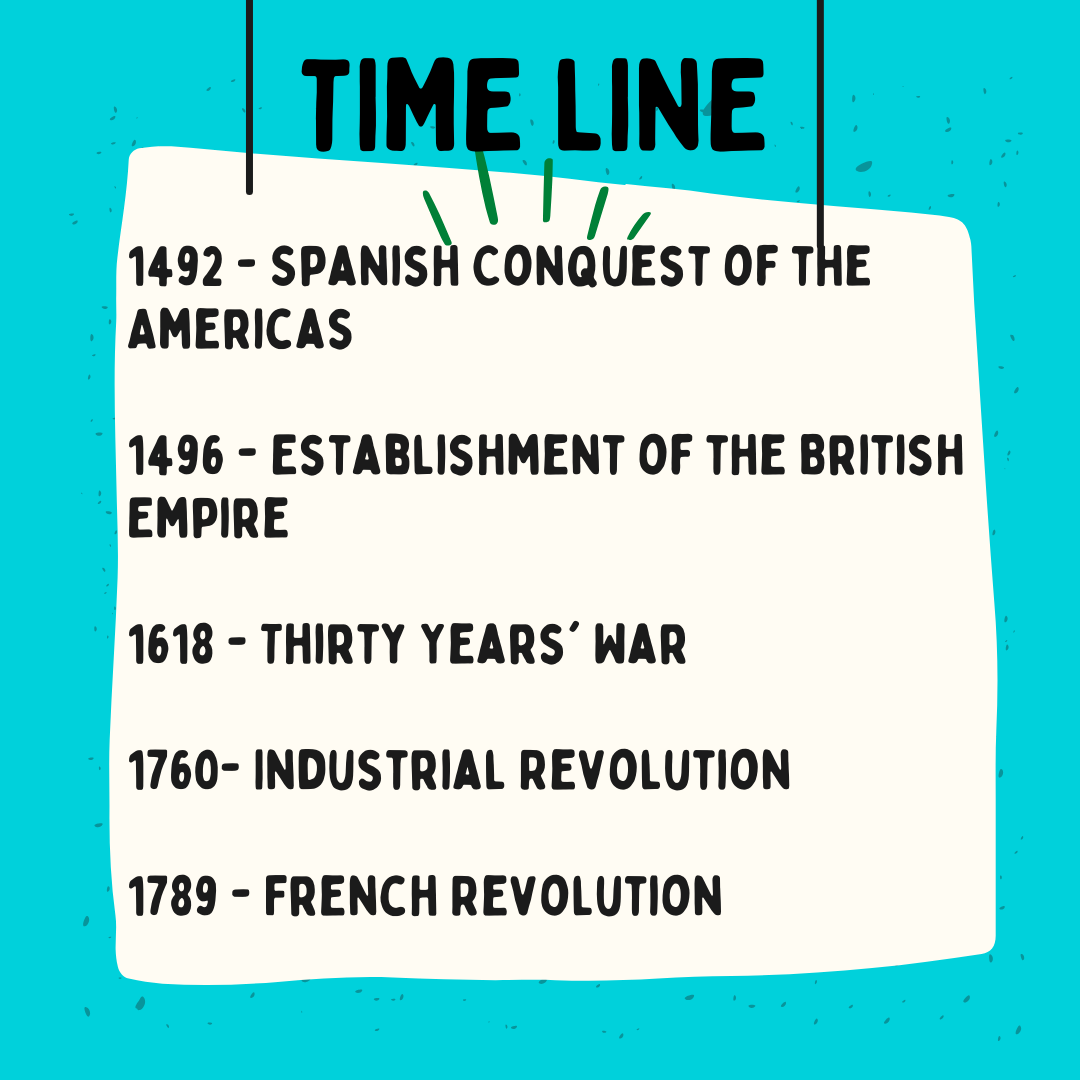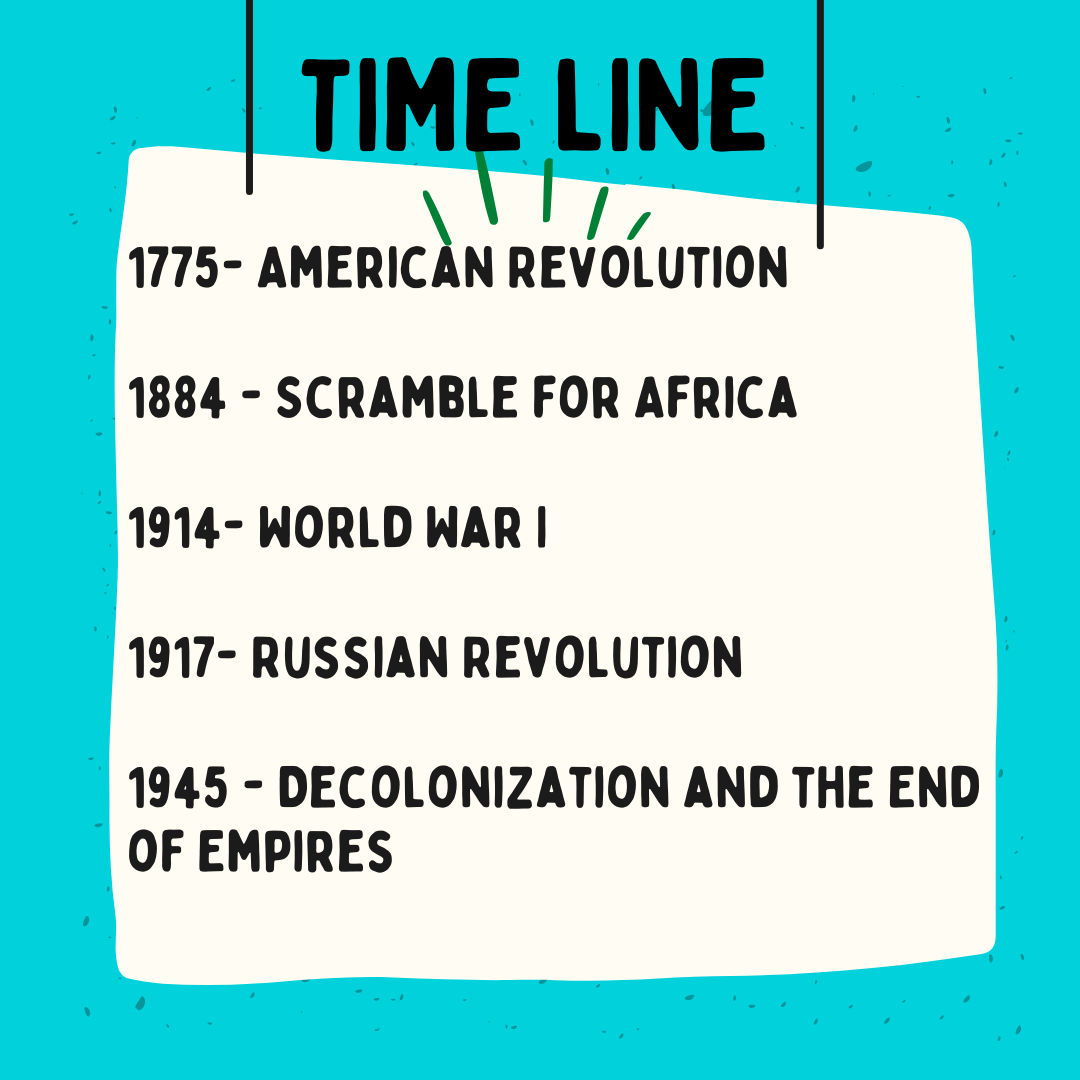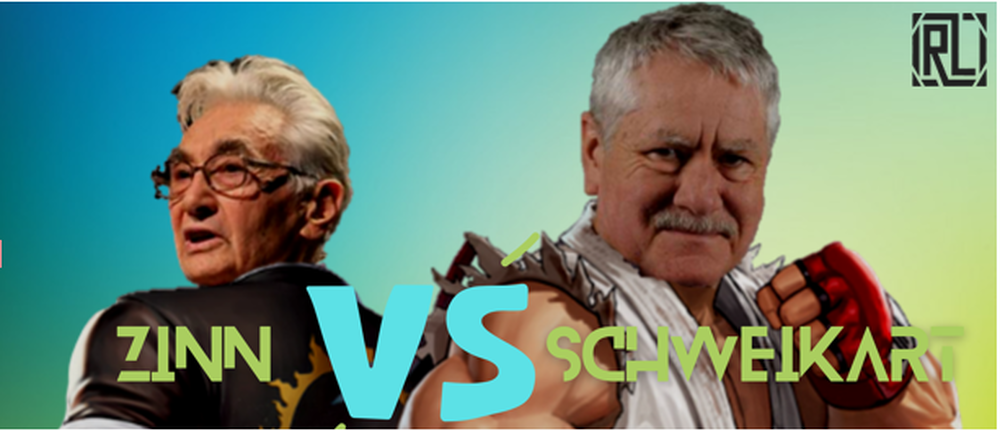Module One: Conquest to Collapse
In history's big book, European empires were like that unexpected guest who raided your fridge, hogged the remote, and acted like they owned the place. With a bold strut, they globe-trotted, leaving their mark like a glitter bomb at a party—dazzling, complex to miss, and a tad chaotic.
Take the Spanish Empire, for instance! In 1521, they showed up at the Aztec Empire's door, playing conquerors at a candy-filled bash, disrupting traditions, and doling out diseases like party favors.
Then we've got the British Empire, that old-world matriarch spreading English, legal jargon, and parliamentary buzz like your aunt with too many leaflets. Sure, they gave us Shakespeare and the rule of law, but also the delights of colonial rule and fiscal games.
The Brits had a knack for claiming things. Imagine breaking into someone's place, redecorating, and then wondering why they don't love the new look.
And Mother Russia, that icy land of drama. The Russian Empire glided across Eastern Europe and Asia like a tsar on skis, updating everything. They gave us Tolstoy, Tchaikovsky, and a universal love for vodka. But they also gave us Russification and a taste for freedom as rare as a Siberian snow leopard. Crimea in 1783? That was the drama's cliffhanger episode.
With their big dreams and dodgy morals, these empires left behind quite a mix. Infrastructure? Yep, roads and railways are handy for resource grabs. Legal tweaks? Sure, laws that conveniently fit their bill. Forced labor and cultural makeovers? The not-so-glam side of empire-building, like the morning after an imperial binge.
So why dig into these empire sagas? Because knowing the past is like peeking at the user guide for today. It helps us untangle today's global mesh, the lasting echoes of empire, and the birth of modern systems.
It's a wild human tapestry of guts, blunders, and comebacks. A reminder that history's not just dates—it's a messy canvas of human zest, drive, and wrestling matches with fate. And within that chaos, there's space for revolt, shaking up norms, and chuckling at life's odd twists.
THE RUNDOWN
QUESTIONS
Take the Spanish Empire, for instance! In 1521, they showed up at the Aztec Empire's door, playing conquerors at a candy-filled bash, disrupting traditions, and doling out diseases like party favors.
Then we've got the British Empire, that old-world matriarch spreading English, legal jargon, and parliamentary buzz like your aunt with too many leaflets. Sure, they gave us Shakespeare and the rule of law, but also the delights of colonial rule and fiscal games.
The Brits had a knack for claiming things. Imagine breaking into someone's place, redecorating, and then wondering why they don't love the new look.
And Mother Russia, that icy land of drama. The Russian Empire glided across Eastern Europe and Asia like a tsar on skis, updating everything. They gave us Tolstoy, Tchaikovsky, and a universal love for vodka. But they also gave us Russification and a taste for freedom as rare as a Siberian snow leopard. Crimea in 1783? That was the drama's cliffhanger episode.
With their big dreams and dodgy morals, these empires left behind quite a mix. Infrastructure? Yep, roads and railways are handy for resource grabs. Legal tweaks? Sure, laws that conveniently fit their bill. Forced labor and cultural makeovers? The not-so-glam side of empire-building, like the morning after an imperial binge.
So why dig into these empire sagas? Because knowing the past is like peeking at the user guide for today. It helps us untangle today's global mesh, the lasting echoes of empire, and the birth of modern systems.
It's a wild human tapestry of guts, blunders, and comebacks. A reminder that history's not just dates—it's a messy canvas of human zest, drive, and wrestling matches with fate. And within that chaos, there's space for revolt, shaking up norms, and chuckling at life's odd twists.
THE RUNDOWN
- The Spanish Empire's expansion spread European culture and religion to the Americas through conquests like the Aztec Empire in 1521.
The British Empire's vast territories disseminated the English language, legal systems, and parliamentary democracy globally, while also imposing economic exploitation in colonies like India.
The Russian Empire's growth across Eastern Europe and Asia modernized Russia but also imposed Russification and limited political freedoms, exemplified by the annexation of Crimea in 1783.
Colonization by these empires led to a mix of positive impacts, such as infrastructure development and legal reforms, and negative consequences like forced labor, cultural assimilation, and economic exploitation.
Understanding post-1500 CE empires is crucial for grasping global interactions, the legacy of imperialism, and the foundations of modern political and cultural systems.
By analyzing the complexities and legacies of these empires, we gain insights to promote critical thinking, global awareness, and strive for a more inclusive and equitable future.
QUESTIONS
- How can understanding the legacies of these empires help us make informed decisions about current global issues?
- Do you think the benefits of colonization outweigh its negative impacts? Explain your reasoning.
- How can we learn from the mistakes and successes of past empires to create a more inclusive and equitable world today?
#1 Historians are Detective
In the intoxicating world of history, historians don the trench coat and fedora, becoming savvy detectives on a mission to unravel the enigmatic tales of our past. It's like being transported to a mysterious labyrinth, where they navigate through hidden truths and buried secrets to illuminate the triumphs and tragedies of human existence.
One of these history sleuths was Tom Reilly. He tackled the ambitious task of rehabilitating the controversial figure of Oliver Cromwell in Irish history. For a jaw-dropping three decades, he dedicated himself to cracking the code of historical records, driven by a burning desire to give Cromwell's reputation a makeover. Armed with primary sources and an insatiable thirst for the truth, Reilly dared to challenge the accepted narrative that painted Cromwell's troops as ruthless killers. Instead, he took a brave stand, insisting that the killings were confined to enemy combatants who'd thrown in the towel. Talk about being fearless in the face of historical hostility!
The meticulous work of historians like Reilly reveals that they aren't just archival keepers of the past but the guardians of truth. Through their relentless pursuit of accuracy, they unearth obscure stories and bring to light the complexities of our shared heritage. With their trusty magnifying glass, they meticulously evaluate sources, separating fact from fiction and leaving no historical stone unturned.
Think of the lessons we can learn from history's grand stage! It's like a dramatic performance from the past, and historians hold the script. They empower us to make informed choices for the present and future, as they remind us that the foundations of today rest on the triumphs and tribulations of yesteryears.
But this historical detective work is a collaborative endeavor. It's a delightful dance between historians and journalists, each bringing their unique skills. Just think of the notorious Watergate scandal; it's a classic tale of collaboration between historians and journalists, a thrilling performance that uncovered the dark secrets of political intrigue. Scholars of the past bring their specialized knowledge in deciphering historical events, whereas investigative journalists utilize their adeptness in finding hidden truths through the persistent pursuit of undisclosed informants and classified records.
Ultimately, these historians do not merely disentangle the enigmas of history; they intricately interlace the tapestry of our comprehension of the world. Their meticulous detective work gives us the tools to navigate the present and shape a brighter tomorrow. So let's raise a glass to the history sleuths, the custodians of truth, and the keepers of our shared heritage.
RUNDOWN
- Historians are like detectives; they use clues to understand past events and interpret findings to determine what happened.
- Irish historian Tom Reilly spent 30 years trying to rehabilitate Oliver Cromwell, a controversial figure in Irish history, by reviewing primary sources and establishing his "authentic voice."
- Reilly claims that Irish history books wrongly suggest that Cromwell's troops killed civilians while they only killed enemy combatants who had yielded.
- Historians are essential because they excavate hidden stories and understand the complexities of human experience, helping us to shape the future by learning from the past.
- Historians and detectives gather evidence to build a case, and historians must evaluate sources to ensure they are credible and relevant.
- Historians and journalists worked together to uncover the Watergate scandal in the 1970s, using confidential sources, government documents, and witness testimony to piece together a twisted tale of political intrigue.
STATE OF THE WORLD
1415 CE, a time when fashion was daring and deodorant was a distant dream. In Europe, kings feasted while peasants dodged the plague, and the Hundred Years' War was the ultimate hat contest between England and France. Over in Asia, China's Ming Dynasty sailed without colonizing, while Timur proved that a terrifying leader beats a big army any day. The Middle East was empire-central, with Ottoman chess games and Mamluk cat-clinging antics. Africa's kingdoms traded gold and salt like bling was going out of style. Aztecs and Incas built monumental Minecraft projects in the Americas, and explorers navigated by stars and sheer luck. Forget printing presses; monks suffered for their art, and religion had a holy war or baptism for every occasion. So, what's the 1415 takeaway? Humans are a mix of grand ambitions and goofy beliefs, mastering stars but stumbling over neighborly love. From medieval feasts of swan for the rich and air for the rest to today's smartphone struggles, some things never change.
HIGHLIGHTS
We've got some fine classroom lectures coming your way, all courtesy of the RPTM podcast. These lectures will take you on a wild ride through history, exploring everything from ancient civilizations and epic battles to scientific breakthroughs and artistic revolutions. The podcast will guide you through each lecture with its no-nonsense, straight-talking style, using various sources to give you the lowdown on each topic. You won't find any fancy-pants jargon or convoluted theories here, just plain and straightforward explanations anyone can understand. So sit back and prepare to soak up some knowledge.
LECTURES
LECTURES
- UNDER CONSTRUCTION!
The Reading section—a realm where our aspirations of enlightenment often clash with the harsh realities of procrastination and the desperate reliance on Google. We soldier on through dense texts, promised 'broadening perspectives' but often wrestling with existential dread and academic pressure. With a healthy dose of sarcasm and a strong cup of coffee, I'll be your guide on this wild journey from dusty tomes to the murky depths of postmodernism. In the midst of all the pretentious prose, there's a glimmer of insight: we're all in this together, united in our struggle to survive without losing our sanity.
READING
This class utilizes the following textbook:
Sherman, Dennis, and Joyce Salisbury. The West in the World. 5th ed. McGraw Hill, 2013.
In the whirlwind of academia, where tweed jackets and discussions about the best coffee spot reign, Joyce Salisbury and Dennis Sherman stand out as the rebels of historical scholarship. Armed with Salisbury's Ph.D. in medieval history from Rutgers University and Sherman's academic journey from UC Berkeley to the University of Michigan, they challenge the conventional norms with their scholarly prowess and irreverent wit. Salisbury fearlessly delves into ancient violence with works like "The Blood of Martyrs" and uncovers forgotten tales of resilience in "The Encyclopedia of Women in the Ancient World." Meanwhile, Sherman, akin to an academic Indiana Jones, roams the globe contemplating French history in Parisian cafes and making history accessible with titles like "A Short History of Western Civilization." Together, they disrupt the ivory tower with their unapologetic approach and thirst for asking the tough questions.
As a dynamic duo, Salisbury and Sherman defy the stereotype of the stuffy historian. Their partnership merges Salisbury's pen, mightier than Excalibur itself, with Sherman's knack for weaving accessible narratives. They're not just scholars but cultural provocateurs challenging the status quo. So, here's to raising a glass (or a quill) to these academic renegades, who breathe life into the dusty corridors of historical scholarship with their relentless curiosity and scholarly swagger.
RUNDOWN
READING
- Chapter 12. Faith, Fortune, and Fame: European Expansion, 1450-1700
This class utilizes the following textbook:
Sherman, Dennis, and Joyce Salisbury. The West in the World. 5th ed. McGraw Hill, 2013.
In the whirlwind of academia, where tweed jackets and discussions about the best coffee spot reign, Joyce Salisbury and Dennis Sherman stand out as the rebels of historical scholarship. Armed with Salisbury's Ph.D. in medieval history from Rutgers University and Sherman's academic journey from UC Berkeley to the University of Michigan, they challenge the conventional norms with their scholarly prowess and irreverent wit. Salisbury fearlessly delves into ancient violence with works like "The Blood of Martyrs" and uncovers forgotten tales of resilience in "The Encyclopedia of Women in the Ancient World." Meanwhile, Sherman, akin to an academic Indiana Jones, roams the globe contemplating French history in Parisian cafes and making history accessible with titles like "A Short History of Western Civilization." Together, they disrupt the ivory tower with their unapologetic approach and thirst for asking the tough questions.
As a dynamic duo, Salisbury and Sherman defy the stereotype of the stuffy historian. Their partnership merges Salisbury's pen, mightier than Excalibur itself, with Sherman's knack for weaving accessible narratives. They're not just scholars but cultural provocateurs challenging the status quo. So, here's to raising a glass (or a quill) to these academic renegades, who breathe life into the dusty corridors of historical scholarship with their relentless curiosity and scholarly swagger.
RUNDOWN
- By the early 16th century, Western culture expanded beyond Europe due to European explorers sailing worldwide.
- Europeans settled in new lands, conquered and colonized territories like the Americas, and established trading posts in the East.
- Merchants and entrepreneurs followed the explorers, leading to the growth of commercial capitalism, new banking techniques, and economic opportunities.
- Some governments began controlling money flow to and from their countries through economic policies.
- This expansion caused enormous wealth and unprecedented suffering, including the virtual elimination of native populations due to warfare, disease, and abuse, and the forced enslavement of hundreds of thousands of Africans.
- The blending of peoples, ideas, and goods profoundly affected the world and fueled European appetites for further exploration and conquest.
Howard Zinn was a historian, writer, and political activist known for his critical analysis of American history. He is particularly well-known for his counter-narrative to traditional American history accounts and highlights marginalized groups' experiences and perspectives. Zinn's work is often associated with social history and is known for his Marxist and socialist views. Larry Schweikart is also a historian, but his work and perspective are often considered more conservative. Schweikart's work is often associated with military history, and he is known for his support of free-market economics and limited government. Overall, Zinn and Schweikart have different perspectives on various historical issues and events and may interpret historical events and phenomena differently. Occasionally, we will also look at Thaddeus Russell, a historian, author, and academic. Russell has written extensively on the history of social and cultural change, and his work focuses on how marginalized and oppressed groups have challenged and transformed mainstream culture. Russell is known for his unconventional and controversial ideas, and his work has been praised for its originality and provocative nature.
My classes utilize both Howard Zinn's A People's History of the United States and Larry Schweikart's Patriot's History of the United States, mostly in excerpts posted to the modules.
My classes utilize both Howard Zinn's A People's History of the United States and Larry Schweikart's Patriot's History of the United States, mostly in excerpts posted to the modules.

Zinn, A People's History of the United States
...Empire abroad requires repression at home. The history of the Roman Empire is a history of the repression of people at home in order to conquer people abroad. The history of the British Empire is a history of the suppression of people at home in order to conquer people abroad. The history of the United States is a history of the suppression of people at home in order to conquer people abroad....
"Empires, by their very nature, are based on exploitation and oppression. The Roman Empire was based on the exploitation of conquered peoples and the oppression of the poor. The British Empire was based on the exploitation of conquered peoples and the oppression of the poor. The United States, like all empires, has always been interested in its own expansion, its own profits, and therefore, in the suppression of independent movements elsewhere...
...The United States, like all empires, has always been interested in its own expansion, its own profits, and therefore, in the suppression of independent movements elsewhere. It is not only the Roman Empire, the British Empire, and the Spanish Empire that have been interested in this; it is the history of empires in general...
...Empire abroad requires repression at home. The history of the Roman Empire is a history of the repression of people at home in order to conquer people abroad. The history of the British Empire is a history of the suppression of people at home in order to conquer people abroad. The history of the United States is a history of the suppression of people at home in order to conquer people abroad....
"Empires, by their very nature, are based on exploitation and oppression. The Roman Empire was based on the exploitation of conquered peoples and the oppression of the poor. The British Empire was based on the exploitation of conquered peoples and the oppression of the poor. The United States, like all empires, has always been interested in its own expansion, its own profits, and therefore, in the suppression of independent movements elsewhere...
...The United States, like all empires, has always been interested in its own expansion, its own profits, and therefore, in the suppression of independent movements elsewhere. It is not only the Roman Empire, the British Empire, and the Spanish Empire that have been interested in this; it is the history of empires in general...

Larry Schweikart, A Patriot's History of the United States
...When celebrating triumphs—whether over inflation, interest rates, unemployment, or communism—Reagan used “we” or “together.” When calling on fellow citizens for support, he expressed his points in clear examples and heartwarming stories. An example, he said, was always better than a sermon. No matter what he or government did, to Reagan it was always the people of the nation who made the country grow and prosper. Most important, he did not hesitate to speak that he thought was the truth, calling the Soviet Union the “evil empire,” a term that immediately struck a note with millions of Star Wars fans and conjuring up the image of a decrepit Soviet leader as the “emperor” bent on destroying the Galactic Republic (America). Once, preparing to make a statement about the Soviet Union, Reagan did not realize a microphone was left on, and he joked to a friend, “The bombing begins in five minutes.” Horrified reporters scurried about in panic, certain that this gunslinger-cowboy president was serious...
...The “evil empire” speech paved the way for one of the most momentous events of the post–World War II era. On March 23, 1983, in a television address, after revealing previously classified photographs of new Soviet weapons and installations in Cuba, Nicaragua, and Grenada, and reviewing the Soviet advantage in heavy missiles, Reagan surprised even many of his supporters by calling for a massive national commitment to build a defense against ballistic missiles. He urged scientists and engineers to use any and all new technologies, including (but not limited to) laser beam weapons in space...
...When celebrating triumphs—whether over inflation, interest rates, unemployment, or communism—Reagan used “we” or “together.” When calling on fellow citizens for support, he expressed his points in clear examples and heartwarming stories. An example, he said, was always better than a sermon. No matter what he or government did, to Reagan it was always the people of the nation who made the country grow and prosper. Most important, he did not hesitate to speak that he thought was the truth, calling the Soviet Union the “evil empire,” a term that immediately struck a note with millions of Star Wars fans and conjuring up the image of a decrepit Soviet leader as the “emperor” bent on destroying the Galactic Republic (America). Once, preparing to make a statement about the Soviet Union, Reagan did not realize a microphone was left on, and he joked to a friend, “The bombing begins in five minutes.” Horrified reporters scurried about in panic, certain that this gunslinger-cowboy president was serious...
...The “evil empire” speech paved the way for one of the most momentous events of the post–World War II era. On March 23, 1983, in a television address, after revealing previously classified photographs of new Soviet weapons and installations in Cuba, Nicaragua, and Grenada, and reviewing the Soviet advantage in heavy missiles, Reagan surprised even many of his supporters by calling for a massive national commitment to build a defense against ballistic missiles. He urged scientists and engineers to use any and all new technologies, including (but not limited to) laser beam weapons in space...

Thaddeus Russell, A Renegade History of the United States
"...the fight that political philosophers have always identified as the central conflict in human history: that between the individual and society. Thus far, scholars have shown little interest in finding this conflict in American history...”
"...the fight that political philosophers have always identified as the central conflict in human history: that between the individual and society. Thus far, scholars have shown little interest in finding this conflict in American history...”
In the bustling tangle of streets and skyscrapers that define today's cityscape, we're all on a perpetual quest for the next great meal and that Instagram-worthy vacation spot. We're the offspring of past empires, those big-picture thinkers who, with a blend of ambition and a dash of greed, set the stage for today's world. The Romans, for instance, were the trailblazers of infrastructure and taxation—making them the pioneers of "organized" living.
Then came the British, with their stiff upper lips and cricket obsessions. They introduced us to the English language, the legal system, and the fine art of queuing. But it wasn't all tea and biscuits; India still recalls the Bengal Famine, where millions went hungry while the British prioritized feeding their troops—a culinary empire with a side of exploitation.
Next up, the U.S., where Ronald Reagan took the reins with a cowboy flair and a fondness for both Star Wars—the movie and the missile defense program. With his "evil empire" narrative, Reagan reshaped U.S. foreign policy, painting the world in stark contrasts. It was storytelling gold, capturing America's essence and ambition. We weren't just another country; we were the beacon on the hill, armed with gadgets and a belief in our awesomeness.
And yet, here we stand, still wrestling with age-old questions about power, nationalism, and how to balance individual freedom with community responsibility. We've swapped gladiators for reality TV stars, chariots for SUVs, and tax collectors for credit card bills. We've moved our exploitation operations offshore while indulging in guilt-free shopping sprees.
We live in a world where food enthusiasts hunt down the perfect avocado toast while kids wish for just one filling meal somewhere else. We hop from one time zone to another, racking up passport stamps like collector's items, ignoring the environmental impact and the cultures we're packaging as souvenirs.
And let's talk about the ever-elusive concept of personal identity. In a world of cultural borrowing and the cancel culture, where's the line between being genuine and just trying to look woke? We're busy crafting our online personas, cherry-picking the highlights that showcase our aspirational selves, conveniently overlooking the messy, unfiltered bits that don't fit the script.
So, cheers to the quirks of human life, the wry humor that helps us see the funny side of things, and the thoughtful observations that push us to aim higher. We're all part of this wild ride called life, characters on a stage set by empires of yore that we can't shake off.
As we navigate the complexities of modern life, let's take a moment to look past the trendy hashtags and sensational headlines. Let's challenge the stories we tell ourselves and the world around us because getting to grips with our past is the first step toward crafting a fairer, kinder, and, yes, tastier future.
THE RUNDOWN
QUESTIONS
Then came the British, with their stiff upper lips and cricket obsessions. They introduced us to the English language, the legal system, and the fine art of queuing. But it wasn't all tea and biscuits; India still recalls the Bengal Famine, where millions went hungry while the British prioritized feeding their troops—a culinary empire with a side of exploitation.
Next up, the U.S., where Ronald Reagan took the reins with a cowboy flair and a fondness for both Star Wars—the movie and the missile defense program. With his "evil empire" narrative, Reagan reshaped U.S. foreign policy, painting the world in stark contrasts. It was storytelling gold, capturing America's essence and ambition. We weren't just another country; we were the beacon on the hill, armed with gadgets and a belief in our awesomeness.
And yet, here we stand, still wrestling with age-old questions about power, nationalism, and how to balance individual freedom with community responsibility. We've swapped gladiators for reality TV stars, chariots for SUVs, and tax collectors for credit card bills. We've moved our exploitation operations offshore while indulging in guilt-free shopping sprees.
We live in a world where food enthusiasts hunt down the perfect avocado toast while kids wish for just one filling meal somewhere else. We hop from one time zone to another, racking up passport stamps like collector's items, ignoring the environmental impact and the cultures we're packaging as souvenirs.
And let's talk about the ever-elusive concept of personal identity. In a world of cultural borrowing and the cancel culture, where's the line between being genuine and just trying to look woke? We're busy crafting our online personas, cherry-picking the highlights that showcase our aspirational selves, conveniently overlooking the messy, unfiltered bits that don't fit the script.
So, cheers to the quirks of human life, the wry humor that helps us see the funny side of things, and the thoughtful observations that push us to aim higher. We're all part of this wild ride called life, characters on a stage set by empires of yore that we can't shake off.
As we navigate the complexities of modern life, let's take a moment to look past the trendy hashtags and sensational headlines. Let's challenge the stories we tell ourselves and the world around us because getting to grips with our past is the first step toward crafting a fairer, kinder, and, yes, tastier future.
THE RUNDOWN
- After 1500 CE, empires like Rome, Britain, and the U.S. rose and shaped Western civilization, spreading culture but also causing exploitation.
- Roman Empire brought peace and built roads, but its expansion often involved heavy taxes and military control.
- British Empire spread English and law, but colonized places suffered economic exploitation and cultural loss, like the Bengal Famine in India.
- The U.S., led by President Reagan, emphasized defense and technology, with his "evil empire" speech changing U.S. foreign policy.
- Reagan connected with Americans using stories and collective language, reflecting America's role and ambition on the global stage.
- Studying these empires helps us understand power, nationalism, and the balance between individual freedom and collective duty, guiding our future decisions.
QUESTIONS
- Can you think of examples where the spread of culture, like language or law, has both positive and negative effects on a region or country?
- In what ways does the legacy of imperialism continue to impact countries that were once colonies?
- How can understanding the history of empires help us make better decisions about global issues like trade, human rights, and conflict resolution today?
Prepare to be transported into the captivating realm of historical films and videos. Brace yourselves for a mind-bending odyssey through time as we embark on a cinematic expedition. Within these flickering frames, the past morphs into a vivid tapestry of triumphs, tragedies, and transformative moments that have shaped the very fabric of our existence. We shall immerse ourselves in a whirlwind of visual narratives, dissecting the nuances of artistic interpretations, examining the storytelling techniques, and voraciously devouring historical accuracy with the ferocity of a time-traveling historian. So strap in, hold tight, and prepare to have your perception of history forever shattered by the mesmerizing lens of the camera.
Click to set custom HTML
THE RUNDOWN
The 17th and early 18th centuries in Europe, a time when drama was so rampant it could've outdone any HBO series. Imagine a continent brimming with royal egos, fervent believers, and enough gunpowder to light up the skies. The "second Hundred Years War" was in full swing because one century of conflict wasn't enough for these spirited folks. Louis XIV, the Sun King of France, was all about the grandeur, turning Versailles into the 17th-century equivalent of a reality TV set with "Keeping Up with the Bourbons." Meanwhile, England was trying to keep its monarchs alive across the channel. William III, the Dutchman, and his cousin Mary introduced constitutional monarchy to England, proving that love could conquer even the thirst for absolute power.
As for the geopolitical landscape, the Nine Years War showcased a "Grand Alliance" of France, Bavaria, Prussia, Austria, and Spain against England, the Dutch, and any constitutional monarchy enthusiasts. It felt like a never-ending family reunion with everyone vying for control, and no one really came out on top. France's economy thrived until wars crashed the party, while England navigated its commercial revolution with a less-than-impressive military. The Dutch Republic punched above its weight, Spain spiraled with weak leadership, and the Holy Roman Empire was chaotic. Prussia flexed its military might under Frederick William the First, and Sweden and Russia made late but impactful entrances. The French Revolutionary and Napoleonic Wars capped off this European drama, with themes of equality versus entitlement taking center stage. Ultimately, this era was a whirlwind of power plays and alliances, shaping Europe's destiny in ways its players never anticipated.
The 17th and early 18th centuries in Europe, a time when drama was so rampant it could've outdone any HBO series. Imagine a continent brimming with royal egos, fervent believers, and enough gunpowder to light up the skies. The "second Hundred Years War" was in full swing because one century of conflict wasn't enough for these spirited folks. Louis XIV, the Sun King of France, was all about the grandeur, turning Versailles into the 17th-century equivalent of a reality TV set with "Keeping Up with the Bourbons." Meanwhile, England was trying to keep its monarchs alive across the channel. William III, the Dutchman, and his cousin Mary introduced constitutional monarchy to England, proving that love could conquer even the thirst for absolute power.
As for the geopolitical landscape, the Nine Years War showcased a "Grand Alliance" of France, Bavaria, Prussia, Austria, and Spain against England, the Dutch, and any constitutional monarchy enthusiasts. It felt like a never-ending family reunion with everyone vying for control, and no one really came out on top. France's economy thrived until wars crashed the party, while England navigated its commercial revolution with a less-than-impressive military. The Dutch Republic punched above its weight, Spain spiraled with weak leadership, and the Holy Roman Empire was chaotic. Prussia flexed its military might under Frederick William the First, and Sweden and Russia made late but impactful entrances. The French Revolutionary and Napoleonic Wars capped off this European drama, with themes of equality versus entitlement taking center stage. Ultimately, this era was a whirlwind of power plays and alliances, shaping Europe's destiny in ways its players never anticipated.
Welcome to the mind-bending Key Terms extravaganza of our history class learning module. Brace yourselves; we will unravel the cryptic codes, secret handshakes, and linguistic labyrinths that make up the twisted tapestry of historical knowledge. These key terms are the Rosetta Stones of our academic journey, the skeleton keys to unlocking the enigmatic doors of comprehension. They're like historical Swiss Army knives, equipped with blades of definition and corkscrews of contextual examples, ready to pierce through the fog of confusion and liberate your intellectual curiosity. By harnessing the power of these mighty key terms, you'll possess the superhuman ability to traverse the treacherous terrains of primary sources, surf the tumultuous waves of academic texts, and engage in epic battles of historical debate. The past awaits, and the key terms are keys to unlocking its dazzling secrets.
KEY TERMS
KEY TERMS
- 1415 CE - Portuguese Empire
- 1492 CE - Spanish Empire
- 1569 CE - Polish-Lithuanian Commonwealth
- 1581 CE - Dutch Republic/Netherlands
- 1581 CE - Spanish Netherlands/Belgium
- 1611 CE - Swedish Empire
- 1661 CE - British Empire
- 1701 CE - Kingdom of Prussia
- 1721 CE - Russian Empire
- 1804 CE - French Empire
- 1804 CE - Austrian Empire/Austria-Hungary
- 1806 CE - Holy Roman Empire/Germany
- 1814 CE - Kingdom of Norway
- 1832 CE - Kingdom of Greece
- 1908 CE - Kingdom of Bulgaria
- 1918 CE - Kingdom of Hungary
- 1922 CE - Ottoman Empire
- 2024 CE - Italian States
- 2024 CE - Swiss Confederation
- 2024 CE - Kingdom of Denmark
DISCLAIMER: Welcome scholars to the wild and wacky world of history class. This isn't your granddaddy's boring ol' lecture, baby. We will take a trip through time, which will be one wild ride. I know some of you are in a brick-and-mortar setting, while others are in the vast digital wasteland. But fear not; we're all in this together. Online students might miss out on some in-person interaction, but you can still join in on the fun. This little shindig aims to get you all engaged with the course material and understand how past societies have shaped the world we know today. We'll talk about revolutions, wars, and other crazy stuff. So get ready, kids, because it's going to be one heck of a trip. And for all, you online students out there, don't be shy. Please share your thoughts and ideas with the rest of us. The Professor will do his best to give everyone an equal opportunity to learn, so don't hold back. So, let's do this thing!
Activity #1: Western Civilization Game
Objective: Navigate key moments in Western civilization after 1500 CE by making strategic decisions as a ruler of an empire, choosing between declaring war or seeking alliances, and seeing how your choices shape your empire's destiny.
Activity #1: Western Civilization Game
Objective: Navigate key moments in Western civilization after 1500 CE by making strategic decisions as a ruler of an empire, choosing between declaring war or seeking alliances, and seeing how your choices shape your empire's destiny.
Western Civilization Adventure Game
Welcome to the Western Civilization Adventure Game! You will navigate through key moments in Western civilization after 1500 CE.
Activity #2: Western Civilization Empires Word Guessing Game
Objective: Guess the name of a Western Civilization empire after 1500 CE by entering letters one at a time, with 7 guesses to reveal the hidden word."
Objective: Guess the name of a Western Civilization empire after 1500 CE by entering letters one at a time, with 7 guesses to reveal the hidden word."
Western Civilization Empires Word Guessing Game
Guess the name of the Western Civilization empire after 1500 CE:
Guesses Remaining:
Ladies and gentlemen, gather 'round for the pièce de résistance of this classroom module - the summary section. As we embark on this tantalizing journey, we'll savor the exquisite flavors of knowledge, highlighting the fundamental ingredients and spices that have seasoned our minds throughout these captivating lessons. Prepare to indulge in a savory recap that will leave your intellectual taste buds tingling, serving as a passport to further enlightenment.
In the humming veins of our bustling cities, we wrestle with shadows from ages gone by. Fueled by caffeine and existential musings, that morning rush is a bit like Rome's ambitious road-building—except ours seems to reevaluate the same old jobs and corporate mazes.
Rome gave us waterways and communal baths, letting even Joe Average feel like a gladiator fresh from the gym. But let's not overlook their penchant for heavy taxes—a trend today's governments seem keen on continuing. Because why stop at civilization when you can fleece your citizens for public services they can't afford?
Then there's Britain, the empire where the sun never set, likely because they were too busy juggling colonies to notice daylight. The Brits gifted us the English language, a never-ending source of linguistic fun, from tricky verb tenses to the eternal biscuit-cookie debate. But along with tea and crumpets, they left a legacy of economic chaos and cultural confusion. Cheers for that, Britannia!
America—the land of liberty, brave hearts, and fast food that time forgot. Remember Reagan's "evil empire" spiel? It was like a blockbuster, where the U.S. played the dashing hero, and the Soviets were cast as the day's villains. It put our global aspirations in the limelight—or, as I see it, our knack for meddling everywhere while acting like we're the planet's moral referees.
Historians, those time travelers in tweed, sift through the wreckage of bygone eras to find the stuff we'd rather sweep under the rug. Take Tom Reilly and his deep dive into Oliver Cromwell's life. He reminds us history tends to side with whoever has the catchiest slogans—or at least the slickest PR crew. And hats off to journalists, the brave souls peeling back the layers of scandals like our Watergate, showing us what happens when power gets too comfy.
As we wander this global maze, understanding the footprints left by empires from Spain to Russia is critical. They've bequeathed us everything from roads and laws to some pretty ugly scars from their darker moments. It's a mixed tapestry of wins and woes, a reminder of the risks of too much power and the dance between freedom and responsibility.
So, fellow globe-trotters, history buffs, empires, and economies shape us in ways we didn't choose. Let's keep history's wisdom close as we sip our fancy coffees and scroll through endless feeds. Let's aim for a future that's welcoming, kind, and, fingers crossed, a tad less bonkers than the world we've stepped into.
Or in other words:
Rome gave us waterways and communal baths, letting even Joe Average feel like a gladiator fresh from the gym. But let's not overlook their penchant for heavy taxes—a trend today's governments seem keen on continuing. Because why stop at civilization when you can fleece your citizens for public services they can't afford?
Then there's Britain, the empire where the sun never set, likely because they were too busy juggling colonies to notice daylight. The Brits gifted us the English language, a never-ending source of linguistic fun, from tricky verb tenses to the eternal biscuit-cookie debate. But along with tea and crumpets, they left a legacy of economic chaos and cultural confusion. Cheers for that, Britannia!
America—the land of liberty, brave hearts, and fast food that time forgot. Remember Reagan's "evil empire" spiel? It was like a blockbuster, where the U.S. played the dashing hero, and the Soviets were cast as the day's villains. It put our global aspirations in the limelight—or, as I see it, our knack for meddling everywhere while acting like we're the planet's moral referees.
Historians, those time travelers in tweed, sift through the wreckage of bygone eras to find the stuff we'd rather sweep under the rug. Take Tom Reilly and his deep dive into Oliver Cromwell's life. He reminds us history tends to side with whoever has the catchiest slogans—or at least the slickest PR crew. And hats off to journalists, the brave souls peeling back the layers of scandals like our Watergate, showing us what happens when power gets too comfy.
As we wander this global maze, understanding the footprints left by empires from Spain to Russia is critical. They've bequeathed us everything from roads and laws to some pretty ugly scars from their darker moments. It's a mixed tapestry of wins and woes, a reminder of the risks of too much power and the dance between freedom and responsibility.
So, fellow globe-trotters, history buffs, empires, and economies shape us in ways we didn't choose. Let's keep history's wisdom close as we sip our fancy coffees and scroll through endless feeds. Let's aim for a future that's welcoming, kind, and, fingers crossed, a tad less bonkers than the world we've stepped into.
Or in other words:
- Urban life mirrors the ambitions and pitfalls of past empires, from Rome's infrastructure to modern-day dead-end jobs.
- The legacies of empires like Britain and the U.S. blend cultural gifts with economic exploitation, leaving a trail of confusion and moral ambiguity.
- Historians and journalists dig deep to uncover truths, challenging the narratives crafted by victors and PR teams alike.
- Global interactions and imperialism shape our world, bringing both infrastructure and scars of forced labor and cultural erasure.
- Critical thinking and global awareness are essential tools for navigating a landscape shaped by complex power dynamics and historical complexities.
- As citizens of a globalized world, we strive for a future that's inclusive, compassionate, and less absurd than the world we've inherited.
ASSIGNMENTS
Remember all assignments, tests and quizzes must be submitted official via BLACKBOARD
Forum Discussion #01
- Forum Discussion #1
- Forum Discussion #2
Remember all assignments, tests and quizzes must be submitted official via BLACKBOARD
Forum Discussion #01
This first week I would like to take it easy, and get to know you better, please answer the following question with a one paragraph minimum:
What do you like about studying history? If you don't like history, what do you think the root cause is? Remember that you will be required to reply to at least two of your classmates.
Forum Discussion #2
Second Thought is a channel dedicated to providing education and analyzing current events through a Socialist lens. Watch the following video:
What do you like about studying history? If you don't like history, what do you think the root cause is? Remember that you will be required to reply to at least two of your classmates.
Forum Discussion #2
Second Thought is a channel dedicated to providing education and analyzing current events through a Socialist lens. Watch the following video:
Considering the similarities between the decline of the Roman Empire and the challenges facing the United States today, do you think the U.S. is at risk of losing its dominant global position? What factors do you think contribute most to the potential decline of a superpower like the U.S.? Share your thoughts and provide examples to support your opinion.
Need help? Remember the Discussion Board Rubric.
THE RUNDOWN
The USA, where we're starting to look a lot like Rome with Wi-Fi. Don't get me wrong, I love an excellent toga party as much as the next person, but history seems to be stuck on repeat. Remember Rome? Marble palaces, endless wars, and inequality galore? Sound familiar? While we're not trading English for Latin or sneakers for gladiator sandals, the parallels are hard to ignore. Our leaders? It is more of a puppet show than a presidential, dancing to a capitalist tune as stable as a house of cards. And let's not forget China, the fresh-faced actor upstaging the old Hollywood legend. So, here we are, at the crossroads of "What just happened?" and "Is this happening?" watching the cracks in our once-dominant empire grow.
Need help? Remember the Discussion Board Rubric.
THE RUNDOWN
The USA, where we're starting to look a lot like Rome with Wi-Fi. Don't get me wrong, I love an excellent toga party as much as the next person, but history seems to be stuck on repeat. Remember Rome? Marble palaces, endless wars, and inequality galore? Sound familiar? While we're not trading English for Latin or sneakers for gladiator sandals, the parallels are hard to ignore. Our leaders? It is more of a puppet show than a presidential, dancing to a capitalist tune as stable as a house of cards. And let's not forget China, the fresh-faced actor upstaging the old Hollywood legend. So, here we are, at the crossroads of "What just happened?" and "Is this happening?" watching the cracks in our once-dominant empire grow.
Hey, welcome to the work cited section! Here's where you'll find all the heavy hitters that inspired the content you've just consumed. Some might think citations are as dull as unbuttered toast, but nothing gets my intellectual juices flowing like a good reference list. Don't get me wrong, just because we've cited a source; doesn't mean we're always going to see eye-to-eye. But that's the beauty of it - it's up to you to chew on the material and come to conclusions. Listen, we've gone to great lengths to ensure these citations are accurate, but let's face it, we're all human. So, give us a holler if you notice any mistakes or suggest more sources. We're always looking to up our game. Ultimately, it's all about pursuing knowledge and truth.
Work Cited:
Work Cited:
- UNDER CONSTRUCTION
- (Disclaimer: This is not professional or legal advice. If it were, the article would be followed with an invoice. Do not expect to win any social media arguments by hyperlinking my articles. Chances are, we are both wrong).
- (Trigger Warning: This article or section, or pages it links to, contains antiquated language or disturbing images which may be triggering to some.)
- (Permission to reprint this blog post in whole or in part is granted, provided that the author (or authors) and www.ryanglancaster.com are appropriately cited.)
- This site is for educational purposes only.
- Disclaimer: This learning module was primarily created by the professor with the assistance of AI technology. While every effort has been made to ensure the accuracy and reliability of the information presented, please note that the AI's contribution was limited to some regions of the module. The professor takes full responsibility for the content of this module and any errors or omissions therein. This module is intended for educational purposes only and should not be used as a substitute for professional advice or consultation. The professor and AI cannot be held responsible for any consequences arising from using this module.
- Fair Use: Copyright Disclaimer under section 107 of the Copyright Act of 1976, allowance is made for “fair use” for purposes such as criticism, comment, news reporting, teaching, scholarship, education, and research. Fair use is permitted by copyright statute that might otherwise be infringing.
- Fair Use Definition: Fair use is a doctrine in United States copyright law that allows limited use of copyrighted material without requiring permission from the rights holders, such as commentary, criticism, news reporting, research, teaching, or scholarship. It provides for the legal, non-licensed citation or incorporation of copyrighted material in another author’s work under a four-factor balancing test.


















